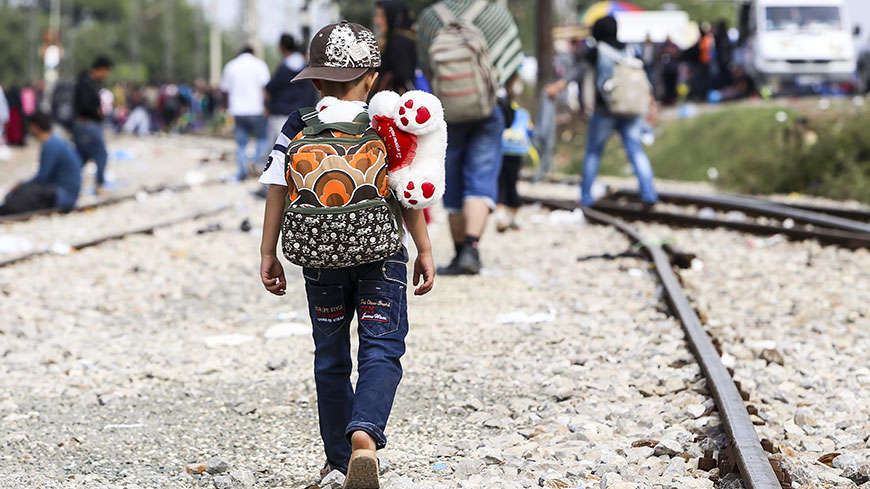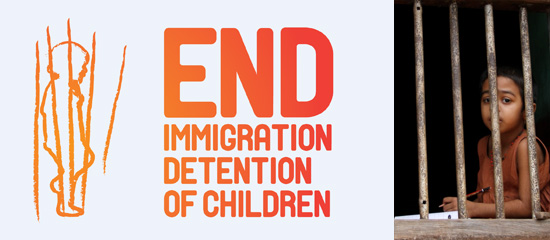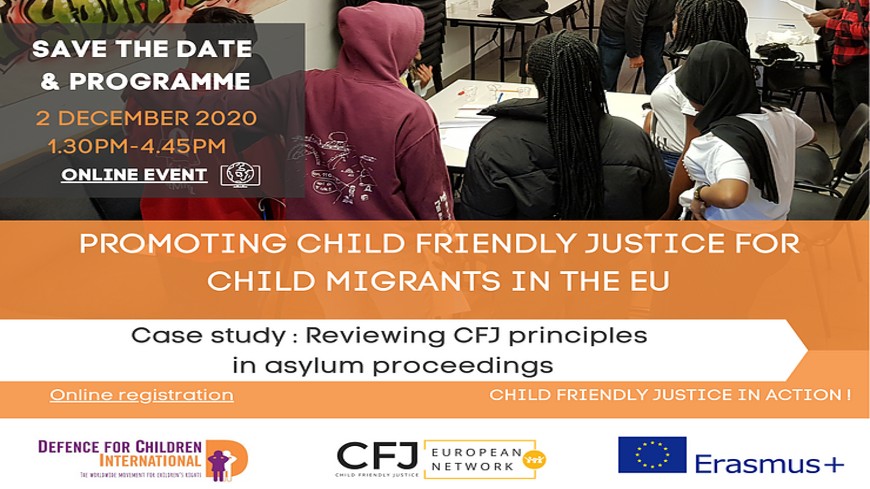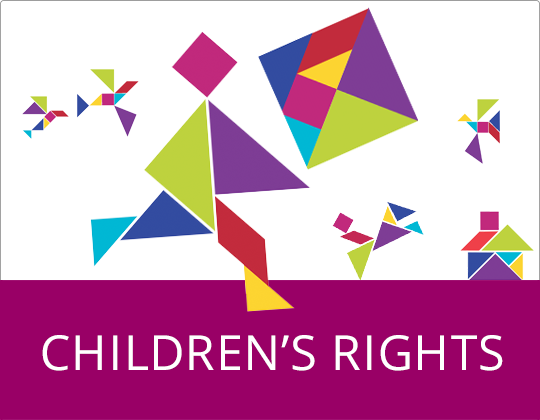On 2 December 2020, Ms Regína Jensdóttir, the Council of Europe Coordinator on Children’s Rights, delivered a keynote speech at the Final event of the Child-Friendly Justice – In Action Project on promoting child-friendly justice for child migrants in the EU. She presented the Council of Europe’s comprehensive standards and extensive work carried out on delivering child-friendly justice. During her intervention Ms Jensdóttir noted that despite all the progress achieved, the reality was, however, that children in Europe continued to face difficulties in accessing justice. Children need justice systems that take account of their particular needs. Through the measures already implemented, and many more to come, the Council of Europe aims to make accessible, empowering and child-friendly justice a reality across the board. Hence, child-friendly justice will remain to be a high priority in the Organisation’s upcoming Strategy for the Rights of the Child (2022-2027).
Refugee and migrant children
Refugee and migrant children are first and foremost children. States must respect their rights, including their right to information, their right to be heard and to a life free from violence.
The Council of Europe aims to ensure that all refugee and migrant children can benefit from the protection measures set out in international and European legal instruments and enjoy the full realisation of their rights in compliance with the UN Convention on the Rights of the Child and the European Convention for Human Rights.
Protecting the rights of refugee and migrant children remains an ongoing challenge and a long-term commitment. Action in this area is guided by the Council of Europe Strategy for the Rights of the Child (2022-2027), whose implementation is overseen by the Steering Committee for the Rights of the Child (CDENF).
CDENF acts as a pan European platform for regular exchanges of knowledge, good practices and experiences to support the implementation of policy measures to protect unaccompanied and other children in the context of migration. Key policy areas addressed include:
- promoting good practices for the implementation of CM/Rec(2019)11 on effective guardianship for unaccompanied and separated children in the context of migration and its Explanatory Memorandum;
- addressing the implementation of policies aimed at ensuring sustainable and durable solutions and the effective integration of children affected by migration more generally, notably by reviewing the implementation of CM/Rec(2007)09 on life projects for unaccompanied migrant minors;
- supporting member states in the implementation of Recommendation CM/Rec(2022)22 on human rights principles and guidelines on age assessment in the context of migration and its Explanatory Memorandum.
In order to protect and promote the rights of children on the move, the Council of Europe has been guiding member states in taking a co-ordinated child rights-based approach to tackle this challenge through two consecutive actions plans coordinated by the Special Representative on Migration and Refugees, and implemented by different bodies and divisions within the Council of Europe: Action Plan on Protecting Vulnerable Persons in the Context of Migration and Asylum in Europe (2021-2025) and Action Plan on Protecting Refugee and Migrant Children in Europe (2017-2019). These policy documents aim at ensuring access to rights and child-friendly procedures, providing effective protection and enhancing the integration of children who would remain in Europe.
Numerous Council of Europe bodies monitor the situation of migrant children in Europe. Recognising the high risk of children affected by the refugee crisis being or becoming victims of sexual exploitation or abuse, the Lanzarote Committee decided to launch an urgent monitoring round and issued a series of recommendations on measures to be taken to improve or reinforce the protection of children affected by the refugee crisis against sexual abuse, and identified promising practices.

Child-friendly information for children in migration and life projects
Child-friendly information for children in migration and life projects
This project supports member States to implement their obligations to inform children in migration in a child friendly way about their rights and to provide access to rights through child-friendly procedures, in line with the principles set out by the Council of Europe Guidelines on Child-friendly Justice. This project aims also to increase States’ capacities to implement durable solutions for children who will remain in Europe through implementation of life projects for unaccompanied children.
See also:
- Video animation on age assessment for children in migration (2020), developed jointly by the Council of Europe and the European Union Agency for Asylum. Available in Arabic, Bambara, Dari, French, Moroccan Arabic, Pashto, Portuguese, Punjabi, Somali, Spanish, Tigrinya and Wolof
- Age assessment for children in migration - A guide for policy-makers (2019)
- Your rights in the age assessment procedure - Information for children in migration (2019)
- How to convey child-friendly information to children in migration: A Handbook for frontline professionals (2019)
- Promoting child-friendly approaches in the area of migration: standards, guidance and current practices (2019)
Download the Children’s Rights Division Tools and Publications

End Immigration Detention of Children Campaign
The Children’s Rights Division carried out work in co-operation with the Council of Europe’s Parliamentary Assembly as part of the End Immigration Detention of Children Campaign. This project was supported through a voluntary contribution from the Government of Switzerland.
As part of this campaign, the Children’s Rights Division:
- Elaborated a training guide on monitoring places where children are deprived of their liberty as a result of immigration procedures (EN - FR - AR).
- Elaborated a training programme for members of national parliaments and ombudspersons’ staff on monitoring places where children are deprived of their liberty as a result of immigration procedures.
- Identified examples of age assessment policies, procedures and practices respectful of children's rights to support the work of the former Ad hoc Committee for the Rights of the Child of the Council of Europe (CAHENF) on standards regarding age assessment.
This project aimed at further enhancing co-operation between parliaments, ombudspersons, competent government bodies and civil service in addressing problems relating to immigration detention of children.

- Diminuer la taille du texte
- Augmenter la taille du texte
- Imprimer la page



